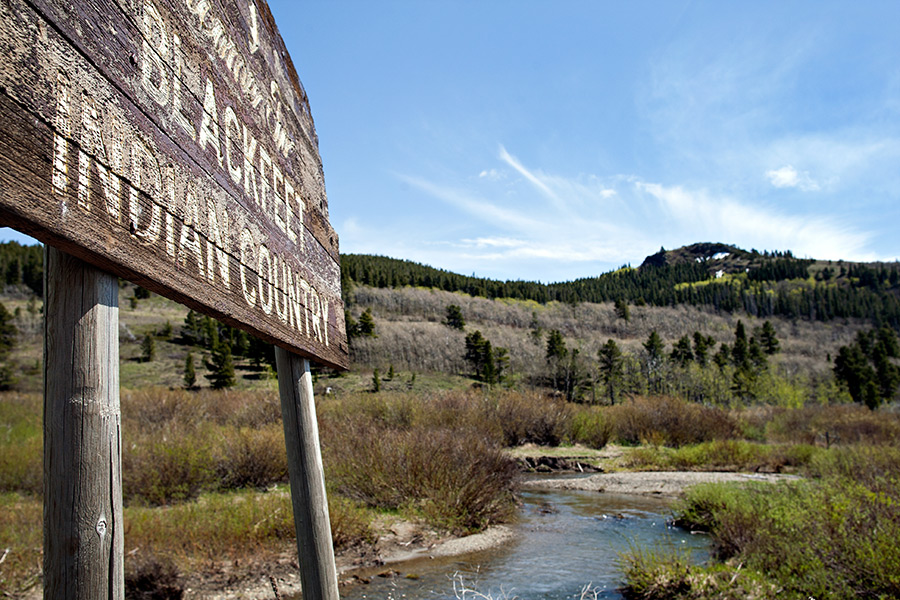A grassroots effort to reform the Blackfeet constitution is gaining steam east of the divide.
In January, Blackfeet Community College co-hosted a two-day constitutional symposium to talk about ways the tribe can improve its government. Now, tribal members are gathering weekly to begin drafting a new set of governing documents.
Tribal council member and one of the constitutional reform organizers Joe McKay said the effort to remake the Blackfeet constitution has been nearly two years in the making.
“The January symposium was the conclusion of a year and a half process of educating ourselves on how (constitutional reform) works,” he said. “We want a constitution that gives a clear definition of what government should do as well as a strong and independent judicial system.”
One of the biggest criticisms of the Blackfeet government – or any tribal government established through the Wheeler-Howard Act of 1934 – is that there is no separation of powers and the tribal council controls everything.
The flaws in the Blackfeet tribal government were on full display in 2012 and 2013, when the Blackfeet Tribal Business Council split into two factions. The split led to numerous government shutdowns and tribal employees were not paid for weeks at a time because neither side had the authority to issue checks.
The actions of the tribal council, led by then Chairman Willie Sharp Jr., drew ire from Blackfeet members and protests outside tribal headquarters. Sharp and other council members were ousted during the last tribal election and a new council took control under the leadership of Chairman Harry Barnes. Among the new members is McKay, who ran for council advocating reforming the tribe’s government.
McKay said although he is helping run the reform effort, he is doing it as a citizen, not a tribal council member. He said the reform effort is a grassroots effort and not directed by the tribal council.
In 2015, community members began meeting to talk about possible reforms and in July an informal poll asked tribal members if they wanted a new form of government. The final vote tally was 412 people in favor of change and 255 against. After taking a few months off for the summer, community members began meeting again and studying government reform efforts on other reservations, including the Crow Nation in 2001. McKay said the group also studied two failed reform efforts on the Blackfeet reservation in 1974 and 2010. Although they have taken notes from those efforts, McKay said this current attempt is not a continuation of those previous.
“We’ve wiped the slate clean and we’re starting from scratch,” he said.
McKay said the new constitution will slowly take shape in the coming months and the group hopes to present a draft to the tribal council this summer. Once the council approves it, the document will be sent to the Bureau of Indian Affairs for review. Tribal members will then vote on the new constitution within six months.
One possible impediment to constitutional reform is the fact that 2016 is an election year on the reservation. At least half the Blackfeet Tribal Business Council faces re-election this year, which could impact the government reform. The current council, however, appears to support the reform efforts, particularly Chairman Barnes.
“This is a bad form of government,” Barnes told the Beacon last year. “Now that I’m in it I can see where all the weaknesses are.”
